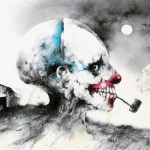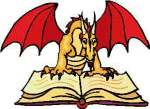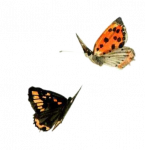I've had the wonderful luxury of getting my father into the MBotF; a retired English professor who's a Tolkien-Evangelist. One of the main things that both he and I have discussed is how pathetically (in the vulnerable, not terrible sense) human Kallor is. Here's what we've arrived upon.
- Ambition: One of mankind's saving graces as a species is our unassailable ambition. It's never a question of "can" or "cannot" with us. Hell, it's not even a matter of "should" or "should not". With humans, it's always "when" and "how". Monolithic structures, vast cities, incredible technology, advances in science. Give us enough time and there's nothing we can't accomplish. More so than any other character, Kallor is an engine of ambition. His want is so strong that he'll decimate his own people, his soul, his humanity to accomplish it. It seems monstrous in the books, but it's no different than any other tyrant in history who regarded human life as a commodity to be spent and used to one's own goals. He even forms short term alliances that benefit him, despite how much he dislikes the person he's allied with.
- Tenacity: Though we haven't been on the planet as long as other species (dinosaurs, etc), we are one of the most prolific creatures to have ever existed. There isn't a single country, continent or landmass that doesn't (or hasn't) have people living on it. We're from pole to pole, and the whole way around. We've lived through ice ages, droughts, storms, blazes, plagues, and wars on a scale never before seen on Earth. Kallor? He's wandered the planet of Wu and despite every attempt to quash him in one way or another, he persists. He's the physical embodiment of human stubbornness and tenaciousness, whether he's defying the gods or simply arguing with someone.
- Pride: I don't need to go too much into this one, it's pretty self-evident. If Kallor were real, and in the year 2017 he'd be a Steve Bannon/Rush Limbaugh/Alex Jones type. And let's be honest, they're all pretty horrible too. He'd have a few million Facebook and Instagram followers who follow him only to tell him how awful he is. He wouldn't care, he'd continue to troll them just to get more followers.
- Swearing: This one may take a bit more explaining, but stay with me. Erikson is not above making his characters swear. I believe he subscribes to the George Carlin thinking that sometimes a good "f*&%" is the best way to emphasis a point. That being said, Erikson is fond of using "MBotF"-isms, like "Hood's Balls", etc. Kallor is the only character who consistently swears and curses in a very modern, "Earth" way. I don't think this was accidental. Take a walk down a busy city street and pay attention to the words people chose when talking on their phones, or with friends. Expletives get woven seamlessly into everyday conversation, in the same way we used to leave pauses for emphasis. It's no longer, "my boss is a jerk", it's "my boss is a f*&king jerk". It's not "what is this?" it's "what is this s*&t?". Kallor's the same way. He curses more casually and less provoked than other members of the cast. He's been alive longer (allegedly) than any other human in MBotF, yet his speech patterns and use of expletives are more in keeping with someone much more immature, much simpler. More "normal".
- Self-loathing: Sure, Fiddler may have the corner on the market when it comes to wallowing in self-pity, but even Erikson wrote "There were times, Kallor reflected, when he despised his own company. [...] Despising himself was, oddly enough, a comforting sensation, for he knew he was not alone in his hate." I mean, if that doesn't sound like the soft, smothering comfort of self-loathing I don't know what does. It's a shield for him. It's an excuse to continue to be awful because no one expects him to be anything but. It allows him to act in accordance with the other points I've made. From experience as an addict I can say that self-loathing is fantastic fuel to have permission to continue your addiction. Kallor's drug of choice? Power.
Well, I hope that wasn't too long winded. I just ask that the next time you're going through MBotF, and you read Kallor you think to yourself, "damn, this sonovab&*^h is as flawed as I am." Minus the genocide, of course. (Another human behaviour)
This post has been edited by McTaco: 10 September 2017 - 02:05 PM

 Help
Help















